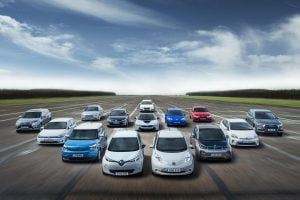
Quebec Nearly Reaches Goal of 100,000 Electric Vehicles On the Road

In order to help consumers put electric vehicles (EVs) on the road, municipalities and authorities must take a multi-faceted approach, offering incentives for buyers, bolstering a region’s charging network, and making it easier to avoid buying traditional gas cars.
Earlier in the year, the province of Quebec in Canada set a goal to have 100,000 EVs (including plugins) on the road by the end of 2020.
According to CBC, the province has reached 92,000 EVs on the road to close out the year, missing its goal by just 8,000 vehicles.
https://twitter.com/MckinleyLynaya/status/1343941487374032896
The figures, which were reported by the Quebec Electric Vehicle Association (AVEQ), are considered a success by founder Simon-Pierre Rioux, who claims “we reached our goal,” despite being under the numerical goal by about 8,000 units. The win, in Rioux’s book, comes with having seen how far Quebec has come since its first EV incentive program, launched in 2012.
Rioux said, “There were a lot of obstacles to buying an electric car; whether it was the additional costs compared to a gasoline-powered car, the anemic charging infrastructure, the lack of availability at dealerships.”
Quebec’s Roulez vert Program offers up to $8,000 CAD ($6,241 USD) towards the purchase of an EV; the rebate will go until at least March 31, 2021. Clearly, the rebate has helped the adoption EVs.
While missing the goal wasn’t in the province’s plans, COVID-19 likely wasn’t either. In addition, it’s probably better to set an overly-ambitious goal for the environment’s sake and miss the mark, than to under-predict and over-shoot the goal, when it comes to a world on the cusp of climate crisis.

